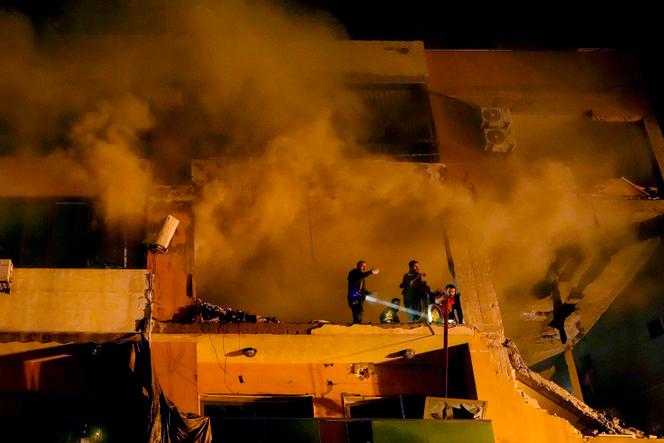


A gaping hole ripped open the facade of a building in a residential area of Beirut's southern suburbs. In this Hezbollah stronghold, members of the Shiite movement's security force have erected cordons to secure access around the site. In the late afternoon of Tuesday, January 2, a very precise drone strike – that has been attributed to Israel – targeted the third-floor apartment where Saleh Al-Arouri, the second-in-command of Hamas's political bureau, had been living. This 57-year-old Palestinian man, one of Hamas leader Ismail Haniyeh's most credible successors to head the movement, was killed along with six other people, including two commanders from Hamas's military wing.
This targeted assassination is Israel's biggest blow to Hamas since the war in the Gaza Strip started. Close to Yahya Sinwar, the Hamas leader in the Palestinian enclave, and to the organization's military wing – which had planned the bloody October 7 attack responsible for the deaths of 1,200 people in Israel and the capture of over 240 hostages – al-Arouri had been a priority target for the Jewish state. Until then, the Israeli army had claimed responsibility for eliminating middle-ranking Hamas officials in Gaza. This operation is therefore the first to target the movement's leaders in exile. It is a slap in the face for Hezbollah, whose stronghold in Beirut has been targeted by Israel for the first time since the 2006 war in Lebanon.
"His assassination is a turning point in the history of Hamas. He was a historic figure, highly respected in the West Bank and by all those involved in the axis of resistance in Lebanon, Yemen, Syria and Iraq," said Leïla Seurat, a researcher at the Arab Center for Research and Political Studies in Paris (CAREP Paris). He was one of the most active architects of reconciliation with Mahmoud Abbas's Fatah and a proponent of unity between the Palestinian factions, hopes which Israel had eliminated. His death came – symbolically – on the eve of the commemoration of the assassination of Iranian Revolutionary Guard commander Qassem Soleimani, killed on January 3, 2020 in a US drone strike in Baghdad. Hamas leader Ismail Haniyeh has nevertheless vowed that his movement "will never be defeated." "This is the history of the resistance and the movement: Following the assassination of its leaders, it becomes even stronger and more determined," he added.
Born in 1966 in Aroura, a small West Bank village near Ramallah, al-Arouri joined Hamas in 1987 during his Islamic studies at Hebron University. He was involved in setting up the movement's military infrastructure in the West Bank,
has been accused of having had a hand in the 2014 abduction of three young boys – which sparked off a war in Gaza – and had been arrested by Israel several times. Israel released him in April 2010, on the condition that he leave the West Bank. He joined Hamas's political bureau in exile – from Damascus to Istanbul, and then to Beirut – becoming its number-two figure in 2017.
You have 75% of this article left to read. The rest is for subscribers only.
